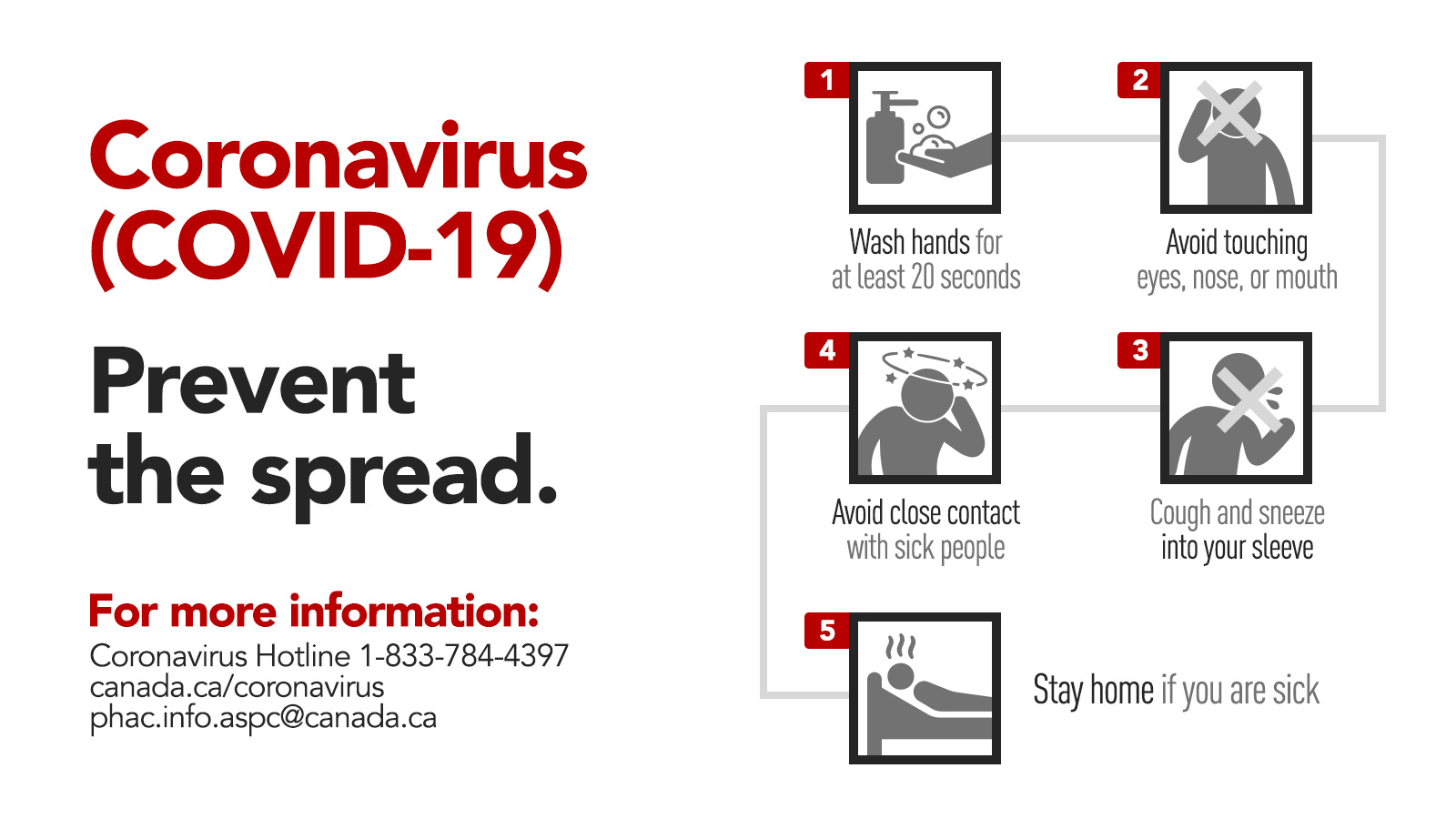- March 20, 2020
- Posted by: Kieran Moloney (Ottawa)
- Category: COVID19


What should I do if I think I have symptoms or think I may have been in contact with someone who has COVID-19?
AHS has released an online assessment tool found here: https://myhealth.alberta.ca/Journey/COVID-19/Pages/COVID-Self-Assessment.aspx
Self-isolation information sheet (PDF, 120 KB)
What are the symptoms of COVID-19?
The most common symptoms of COVID-19 are fever, tiredness, and dry cough. Some patients may have aches and pains, nasal congestion, runny nose, sore throat or diarrhea. These symptoms are usually mild and begin gradually. Some people become infected but don’t develop any symptoms and don’t feel unwell. Most people (about 80%) recover from the disease without needing special treatment. Around 1 out of every 6 people who gets COVID-19 becomes seriously ill and develops difficulty breathing. Older people, and those with underlying medical problems like high blood pressure, heart problems or diabetes, are more likely to develop serious illness. People with fever, cough and difficulty breathing should seek medical attention.
The main way the disease spreads is through respiratory droplets expelled by someone who is coughing. The risk of catching COVID-19 from someone with no symptoms at all is very low. However, many people with COVID-19 experience only mild symptoms. This is particularly true at the early stages of the disease. It is therefore possible to catch COVID-19 from someone who has, for example, just a mild cough and does not feel ill. WHO is assessing ongoing research on the period of transmission of COVID-19 and will continue to share updated findings.
How long does the virus live on surfaces?
It is not certain how long the virus that causes COVID-19 survives on surfaces, but it seems to behave like other coronaviruses. Studies suggest that coronaviruses (including preliminary information on the COVID-19 virus) may persist on surfaces for a few hours or up to several days. This may vary under different conditions (e.g. type of surface, temperature or humidity of the environment).
If you think a surface may be infected, clean it with simple disinfectant to kill the virus and protect yourself and others. Clean your hands with an alcohol-based hand rub or wash them with soap and water. Avoid touching your eyes, mouth, or nose.
Where can I get the most up to date information on the coronavirus (COVID-19) and actions being taken to protect the health of Albertans?
For the most up to date information locally including current situation, risk, cases and testing, prevention, etc. please visit https://www.alberta.ca/coronavirus-info-for-albertans.aspx
Additional information can be found on the Government of Canada’s site here: https://www.canada.ca/en/public-health/services/diseases/coronavirus-disease-covid-19.html
For the city of Calgary: https://www.calgary.ca/CSPS/cema/Pages/Response-to-Coronavirus.aspx
Is it okay to attend large public gatherings?
https://www.alberta.ca/coronavirus-info-for-albertans.aspx
How do I prevent and prepare for COVID-19?
https://www.alberta.ca/coronavirus-info-for-albertans.aspx#p22780s5
Self-isolation information sheet (PDF, 120 KB)
Alberta Mental Health Resources
- 1-877-303-2642 (Toll free)
Is there anything I should not do?
The following measures ARE NOT effective against COVID-2019 and can be harmful:
- Smoking
- Wearing multiple masks
- Taking antibiotics (See question 10 “Are there any medicines of therapies that can prevent or cure COVID-19?“)
In any case, if you have fever, cough and difficulty breathing seek medical care early to reduce the risk of developing a more severe infection and be sure to share your recent travel history with your health care provider.
Do you have any awareness resources in other languages available?
- Yes, there are resources in multiple languages here:
- https://www.ontario.ca/page/2019-novel-coronavirus#section-11
- https://www.canada.ca/en/public-health/services/diseases/2019-novel-coronavirus-infection/simplified-chinese/outbreak.html
- https://www.canada.ca/fr/sante-publique/services/maladies/2019-nouveau-coronavirus.html
